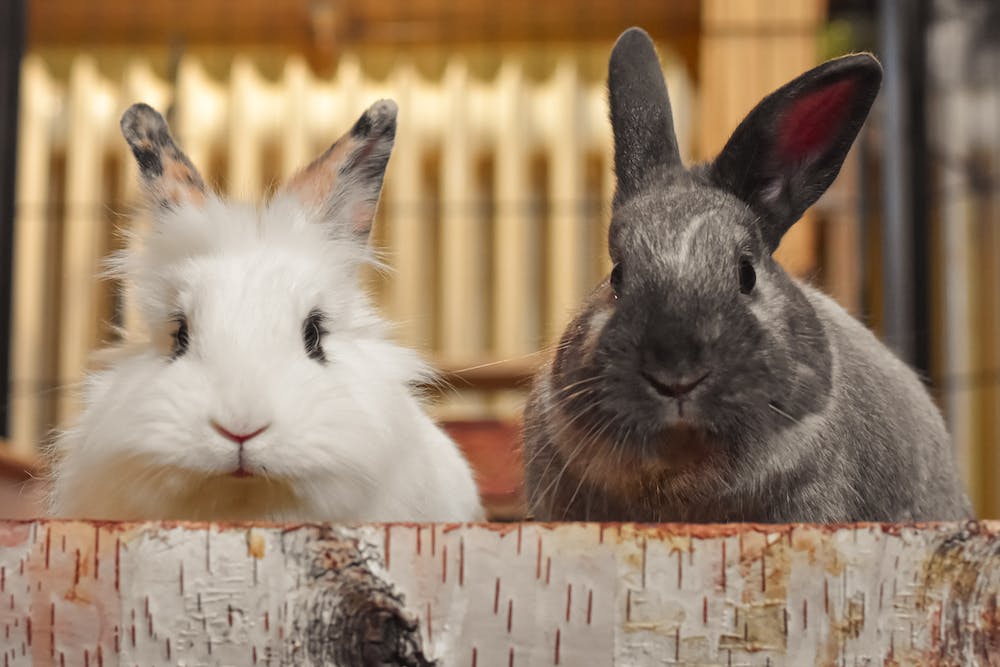How can I keep my rabbits safe against household hazards?

Many rabbits are kept indoors, with free range of the house and even parts of the yard, but these unsupervised activities can put your rabbit at risk. Rabbits are great chewers, so the most dangerous household hazards are things that they can chew on and hurt themselves, such as electrical cords and toxic plants, and soft plastics that can be a choking hazard. Other dangers are not immediate, but they can cause health problems for your rabbits over time.
Some common household hazards include:
Electrical wires
The biggest danger to pet rabbits in most homes is electrical cords. Rabbits like to chew on everything, especially something that looks like a root or twig. Because of this, rabbits are notorious for snipping through all kinds of wires lying around the house. To protect your rabbit and your cords, it’s a good idea to both get the cords up and out of your rabbit’s reach, and also use wire covers, such as split loom wire tubing.
House plants
Toxic house plants can be dangerous to rabbits. Many people assume that the rabbit instinctively knows not to eat poisonous plants, but this is not the case. They may nibble at a poisonous house plant simply because it’s there. See our article on feeding your rabbit for a list of poisonous plants.
Human foods
As a rule, human foods should be kept away from rabbits. This includes things like cereals, crackers, bread, other processed grains, chocolate, and sweets. Only feed foods that are safe and appropriate.
Cleaning chemicals and sprays
Use pet-safe cleaners and products in areas that your rabbit has access to. Be careful with insect sprays. Remember, anything that ends up on your bunnies’ fur will end up in their body after they have groomed themselves.
People and pet medications
You may have medications that you have used yourself, or on your other pets in the house. Make sure you keep your rabbits away from these, and do not use them without veterinary advice. Some antibiotics (e.g., amoxycillin) are fatal if given to rabbits, as are some flea treatments e.g., fipronil (Frontline Plus®).
Slippery floors
Rabbits do not have pads on the bottom of their feet — because of this they may slip on a polished or tiled floor. This can result in broken legs, or even a broken spine. Use carpets and area rugs in parts of the house the rabbit to which the rabbit has access.
Plastic bags or packing material
Thin plastic bags or soft rubber plastics may be chewed and swallowed by rabbits. The other danger is suffocation — if a rabbit curiously checks out the inside of a plastic bag and can’t figure out how to get out again, there is a slight risk of suffocation.
Household pets
Family pets like cats and dogs are predators and can cause harm to, or scare, your pet rabbits. No matter how friendly your other pets are, they are a predator species and you should never under-estimate what they can do in just a matter of a few seconds. Rabbits, as a prey species, recognise this and having a dog or cat in close proximity is extremely stressful to them. And as for your dog or cat, eventually their predator instincts may get the better of them, and a fatal attack on your rabbit can happen without warning. So even of everyone seems to be happy sharing the other’s company, it is best not to allow rabbits to mingle with dogs and cats.
Heat
Every summer, many rabbits die of heatstroke. Whether they are just inside the house or outdoors, when the temperature rises to more than 30°C, it’s too hot for them to handle.
Was this article helpful?
This work is licensed under a Creative Commons Attribution-NonCommercial-NoDerivatives 4.0 International License.


